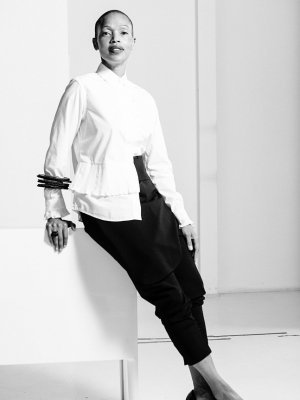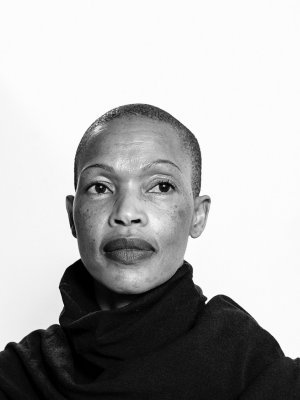There was a time when societal norms expected black women – professionals or not – to have children. Eyebrows were raised if this didn’t happen. While civilisation has shifted how people think and behave, black professional women are still subject to hostility in society in general and in the workplace, specifically, for choosing to be child-free.
“In some instances, women who choose to be child-free are seen as sacrificing motherhood to enhance their careers. These assertions are untrue as women are quite capable of making their own choices regarding their careers without using a matricentric lens,” says GIBS lecturer, Dr. Sizakele Marutlulle.
Marutlulle says there is increased focus on black women, but very little attention has been given to the experiences of black professional women who choose lives without children.
In a recent paper, Marutlulle finds that the workplace is hostile towards black, child-free, professional women (BCPW) in South Africa. The study was intended to generate a language sensitive to the existence and needs of the child-free and advocates for ‘childfreeness’ as a legitimate reproductive choice available to women.
“However, what the BCPW require and create does not diminish their womanhood, nor does it negatively affect mothers and society. Therefore, the hostility they experience and their continued erasure appear misdirected,” says Marutlulle.
Workplaces tend to prioritise and economically reward women with children or families and men, even though they do the same amount of work.
“Management expects the same level of performance from child-free women to mothers and male counterparts, and yet they fail to understand that child-free women have other responsibilities outside of the workplace that their counterparts don’t have.”
On BCPW, Marutlulle’s study showed that being child-free is a growing trend globally. It remains a reproductive choice that exposes black child-free professional women to debilitating social prejudice and disruptive exclusion in South Africa.
She surveyed black professional women aged between 29 and 79 years, including child-free, middle-class, urban and with post-Matric qualifications or a university degree. “For these BCPW, their professional success was a by-product, not the catalyst of them being child-free.”
According to Marutlulle, their diverse experiences in the workplace and society are characterised by prejudice, self-defence, rejection, stigma, and the pain of being labelled irresponsible and unfulfilled.
“For child-free black women, diversity and inclusivity are not enough. The workplace needs to recognise that women have choices. Their bodies and what they are capable of doing shouldn’t be a subject of rude discussions around the boardroom table.”
She points out that child-free women are deliberately excluded from meaningful discussions and project participation because they are deemed “irresponsible”, as though child-bearing is the only legitimate means of asserting one’s adult status and ability to handle ‘tough’ and ‘large’ tasks.
Some pronatalist women in leadership positions who comply with the motherhood mandate intensify the discrimination against the child-free, thus exacerbating the issue. But there is hope, and it starts with recruitment, she points out.
Intentional recruitment
For Marutlulle, recruitment is the key to solving the challenges faced by child-free women and mothers in the workplace. In interviews, questions and discussions are often focused on the work at hand but do not consider the complete being who will be doing that job.
“It’s important that women are seen as professionals who are equally capable as their male counterparts, not little girls who need help.”
Human resources teams could be champions of change in the workplace. Instead of expecting women to comply with outdated and discriminatory policies based on gender, they should be looking at women’s capabilities.
The workplace needs policies that find the right talent within women and should be able to reward them accordingly. During interviews, questions and discussions should not be just about the individual’s experience but should seek to find out about their ambitions and other personal responsibilities outside work.
Mental health is often overlooked, yet this is a huge battle many women – childfree or mothers – face in the workplace. The fact that there are subtle rules to be followed to perform discourages women from asking for help.
Marutlulle says mothers especially tend to hold themselves back in the workplace by not asking for help. This comes from the social pressure of ‘mosadi o tshwara thipa ka bohaleng’, meaning a woman can handle everything.
“This misconception leads to anxiety and mental health issues which, unfortunately, for many, results in poor performance,” she says.
Women are ambitious and driven to succeed, but they are also carers and nurturers. The Covid-19 pandemic showed women’s resilience in the face of uncertainty, and yet, many women were the first to lose their jobs while others either left employment or worked reduced hours to look after their families.
Workplace solutions
The BCPW surveyed reported negative workplace experiences, including discrimination and coercion, where the child-free are subjected to forced ‘camaraderie’ and pressure to conform to group dynamics. Some reported exploitation as they are deemed ‘always available’ but are not offered compensation for extra effort.
Being child-free is a career limitation due to being negatively stereotyped as childish, irresponsible and therefore deprived of high-level opportunities in the workplace, she explains.
“HR should create conducive and enabling environments for women to grow and thrive in the workplace. They should have policies that support rather than stifle women’s progress.”
She says diversity is important in enabling the child-free and mothers in the workplace to speak up against the threat of ongoing inequality without fear of condemnation. Organisations embracing diversity will continue to attract and retain talent – child-free women or those with children.






